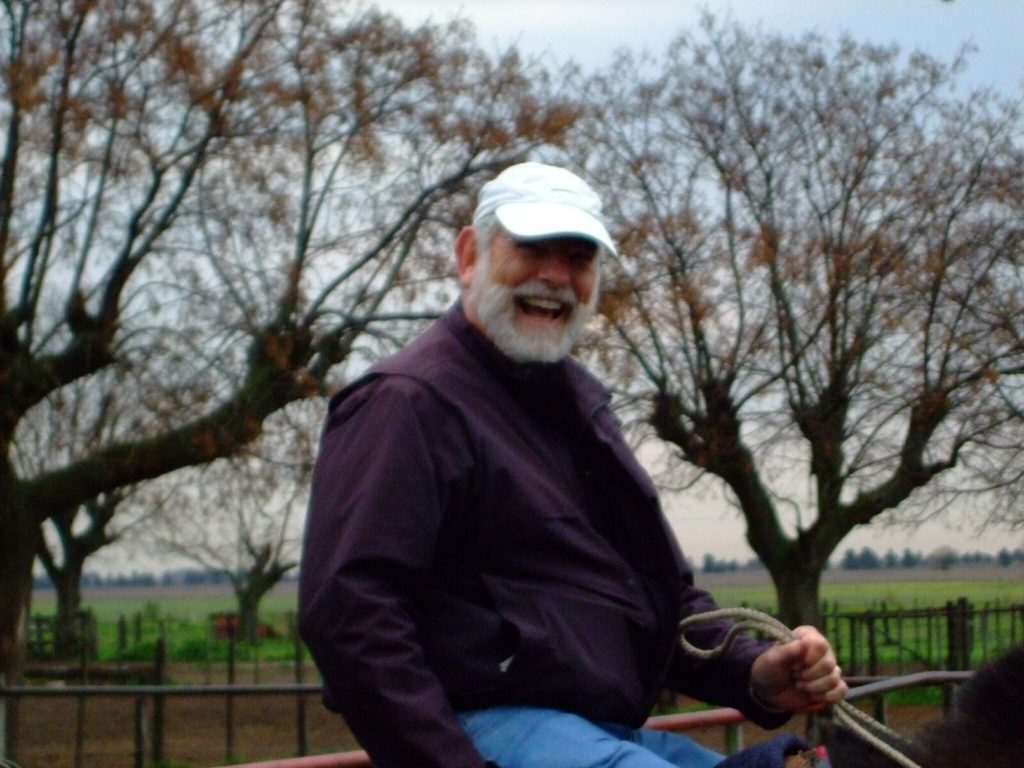Carl B. Schreck
Richard R. Peter lectureship 2016



Dr. Carl B. Schreck is a Professor and former Leader at the department of Fisheries and Wildlife, Oregon State University
Dr. Carl Schreck graduated from the University of California, Berkeley, in 1966 with an A.B. in Zoology. Following a year’s study at Humboldt State University he attended Colorado State University where he received his M.S. in 1969 in Fisheries Science and his Ph.D. in 1972 in Physiology and Biophysics and Fisheries Science.
After receipt of his Ph.D. he was an Assistant Professor at Virginia Polytechnic Institute and State University. In 1975 he became the Assistant Leader of the Oregon Cooperative Fish and Wildlife Research Unit through the U.S. Fish and Wildlife Service and an Assistant Professor at Oregon State University. Two years later he became the Leader of that Unit; he just retired from that position and as a Senior Scientist with the U.S. Geological Survey. He is also a Full Professor in the Department of Fisheries and Wildlife at OSU. His research has been on a variety of species including lamprey, sturgeon and a variety of teleosts, particularly salmonids. He applies environmental physiology and behavior to address environmentally relevant questions. 20 years research experience studying juvenile and adult fishes in the Columbia basin, including dams, reservoirs, the estuary, and hatcheries. Professional recognition includes:
- U.S.A President, Presidential Meritorious Professional Service Award, White House (2008)
- Senior Scientist (ST, equivalent to GS 16-18) merit-based promotion, U.S.G.S., U.S. Department of Interior
- Meritorious Service Award, Secretary of the Interior (2003)
- Educator of the Year Award, American Fisheries Society (2000)
- Excellence for Graduate Mentoring Award, Oregon State University (2013)
- Award of Excellence, American Fisheries Society (2009)
- Award of Excellence in Fish Physiology, American Fisheries Society (2012)
- Award of Excellence, Western Division American Fisheries Society (2007)
- Fishery Worker of the Year, Oregon Chapter American Fisheries Society (2004)
- Lifetime Achievement Award, Oregon Chapter American Fisheries Society (2018)
- Distinguished Professor, College of Agricultural Sciences, Oregon State University (2010)
- Twice Earle Price Award for Excellence in Research, Oregon State University (1991, 2013)
- Howard Bern Lectureship Award, Society of Integrative and Comparative Biology (2010)
- Richard E. Peter Lectureship Award, International Society for Fish Endocrinologists (2016)
- Directors Award for Research Excellence, U.S. Fish and Wildlife Service (1991)
- Directors Award for Unit Management, U.S.G.S (2001)
- Twice winner of the William F. Thompson Award, American Institute of Fishery Research Biologists (1980 and 1989)
- American Association for the Advancement of Science awarded Lifetime Membership (2017)
- Elected Fellow American Fisheries Society (2015)
Others with students and colleagues.
Approximately 90 M.S. and Ph.D. theses supervised to date.
He served on the Governor’s Coastal Salmon Science Team to develop recovery plans for at risk salmon and trout for the federal listing process. He served three four year terms as a member of the Independent Multidisciplinary Science Team for the State of Oregon, being appointed by the Governor, Speaker of the House and President of the Senate. He has been elected Co-Chair of the IMST for six of those years. The IMST served to provide scientific oversight of issues related to salmonid recovery measures and restoration of watershed health. He worked on ESA recovery teams for the Secretary of the Interior.
He has served on the editorial boards of General and Comparative Endocrinology, The Transactions of the American Fisheries Society, Copeia, Comparative Biochemistry and Physiology, and Aquaculture, and as Editor for “The Environment” for the journal Diseases of Aquatic Organisms. Three terms as President of the International Federation of Fish Endocrinologists. Dr. Schreck has also served as a Visiting Full Professor at the University of Jos, Nigeria.
Significant scientific contributions include: 1) first precise and accurate quantification of hormones in fish (first RIA), 2) first mathematically based methodology to determine phylogenetic relationships amongst fishes, 3) first model of how fish respond physiologically to stress and how that relates to their performance, 4) first use of multiple types of taxonomic traits (allozymes, morphology and life history) to classify fish, 5) one of the first to use DNA to classify fish, and 6) the first discovery that the lower 1.5 Km of an estuary is where 50% of out-migrating salmonid mortality occurs for some species.
Publications: Dr. Schreck has authored over 300 refereed scientific articles and books.


